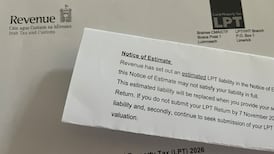BETWEEN MAY and June of this year there was an increase of 19,000 in the number of people signing on the Live Register. The rise was much worse than the Government had anticipated and the extra cost, at a time of falling exchequer income, ensured that additional steps would be taken to combat fraud and social welfare abuses.
In responding to this situation, however, welfare officials have an obligation to treat vulnerable individuals with due respect and consideration. For some people, attending a dole office can be a distressing experience. They may have been in long-term gainful employment before losing their jobs through no fault of their own. Many will have families, mortgages and financial commitments, and they need to be met with understanding, rather than a suspicious attitude that suggests they are trying to rip off the system.
Of course fraud has to be identified and the perpetrators charged. But the implementation of social welfare regulations must also be conducted in a balanced and reasonable manner. Two initiatives have been undertaken by the Minister for Social and Family Affairs, Mary Hanafin, within the past month in an attempt to bring down costs and reduce the number of people "signing on".
The first involves steering some of the 48,000 young people under 25 years old on the Live Register towards "back to education" schemes that will improve their skill levels and increase their chances of employment. Work on identifying suitable candidates is now under way at local level.
The second was designed to counteract automatic payment fraud. It will require claimants to sign on at welfare offices once a month and receive payment at designated post offices once a week. Payments will no longer be made to bank accounts. Inspectors will also monitor the residency of Irish and foreign claimants through regular home visits.
Fraud or overpayment have been found to exist in nine per cent of more than 2,000 cases subjected to close examination by welfare officials since last September. Some individuals lived or worked elsewhere in the EU and returned, once a month, to register and claim assistance. Child and family benefits were also involved.
It is important to keep matters in perspective. Benefits must be administered in a humane fashion. Fraud is one thing, discretion in allowing benefits, another.










